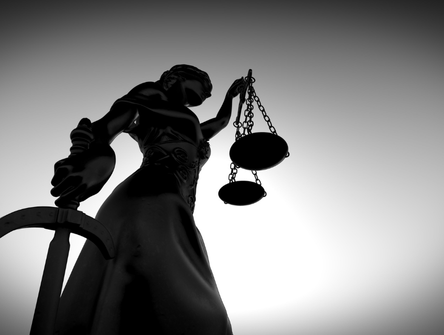A modest Judge
In the context of discussion about judicial arrogance, Justice Brown's exposition of what modesty on the bench looks like is worth drawing attention to.

There has been some debate about whether Justice Russel Brown of the Supreme Court was part of a trend of judicial arrogance. Alice Woolley argued that he was, citing the opening paragraph of his majority opinion in Canada (Attorney General) v Igloo Vikski Inc. I said no, as did Nicholas Hay over at The Court. So it is timely that Ultra Vires, the University of Toronto Faculty of Law student newspaper, has recently published an interview with Justice Brown himself. While it contains no insights on the art of hockey goaltending, it does give us a better sense of Justice Brown's views on judging ― and indications, insofar as extrajudicial talk, which like any talk is by definition cheap, can give us indications about the judge's true views, that this judge is a rather modest one.
In response to a question about the influence of his background on his judicial work, Justice Brown says that his "experience as an academic has been helpful in the sense of taking seriously what the other side says". (Actually, this is a useful reminder for academics as well as judges; Justice Brown attributes it to advice from David Dyzenhaus, and prof. Dyzenhaus will not give bad advice!) Audi alteram partem ― listen to the other side ― is of course the very first part of a judge's job description, but keeping to it consistently does require some humility, or at least an awareness that one does not have all the answers worked out beyond dispute.
Justice Brown's statement of the judge's ultimate job description also reflects a humble view of his task. A judge, he says, must "adjudicate according to his or her conscience as to what the law requires". Simply, modestly, to apply one's best understanding of the law. Not to bring forth the Just Society promised by Pierre Trudeau (and previously by Jesus Christ, at least if Trudeau himself was to be believed), as Chief Justice McLachlin apparently believes. Not to legislate, as Justice Rowe does. Not to make up and bless constitutional rights, as does Justice Abella. (Justice Abella, Justice Brown says, is "a good friend", though they "see eye to eye on very little". The Canadian version of the notorious Ginsburg-Scalia friendship, albeit with less colourful characters?) In a subsequent answer about the appellate courts' role, Justice Brown adverts to their fact that these courts exist in part "to settle the law" and even to contribute to its "development". That's fair enough ― the law does not come with ready-made answers to every question, and judges add to it as they address issues that had not previously come up, or even revise previous answers in light of new facts and circumstances. But I trust a judge whose first instinct is to work out where the law stands to do it more prudently and wisely than one who conceives of him- or herself as holding a roving commission to do justice and make law whenever doing justice makes it expedient.
Justice Brown’s view of the institution he serves is similarly unassuming ― and it bears quoting at some length:
there is a tendency in our national culture ... to regard the pronouncements of the Supreme Court not just as statements of the law but as indisputable statements of the law—and often that’s just not so. Our judgments are the product of judgment calls, and we should make those explicit. When we do that we’ll find, I think, that they aren’t as indisputable as people might have taken them to be. (Emphasis Justice Brown's)
We'll see whether Justice Brown is really serious about acknowledging the judgment calls that he and his colleagues make in adjudicating. In my admittedly very limited experience, judges ― even at the lowly Federal Court ― are not exactly keen on admitting to any doubt about their conclusions, even if they have in fact swung back and forth while they had the case under advisement.
But even if he does not quite do that, I think it is very good ― and, yes, very modest ― of him to remind us that the decisions of the Supreme Court can be disagreed with. Later, in a discussion of "judicial activism", Justice Brown (who thinks ― as do I ― that it is an unhelpful term) specifically mentions the "debate about the role of courts vis-a-vis legislators" and the amount of deference judges owe legislative choices, as well as the "debate about the role of the administrative state in the context of the dual imperatives of legislative supremacy and the rule of law". These, he says, are "entirely legitimate". Those who are shocked at criticism of judicial decisions or of the judges' understanding of their constitutional role, and even claim that such criticism somehow undermines judicial independence, take note!
There is more interesting stuff in that interview ― Justice Brown's views on blogging, for instance (though the interviewers didn't ask the really juicy question ― what would Justice Brown think of a sitting, or at least a retired, judge doing it?), on dissenting opinions, and on impartiality. Do read the whole thing. But I thought that in the context of the (much needed) discussion about judicial arrogance, Justice Brown's exposition of what modesty on the bench looks like was worth drawing attention to.


